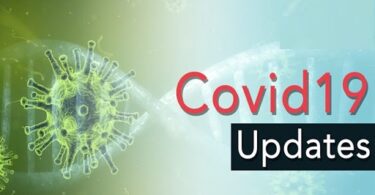
ABSTRACT
The keynote prescription is something that is peculiar to medicine and on the basis of these symptoms, a practitioner can give and individualize the case with ease and comfort. The keynote prescription gives a direct method to Individualisation on the basis of peculiar symptoms of medicines which are given by different Authors in their writings of Keynote prescriptions.
KEYWORDS
Keynote, prescription, homeopathic medicines, Dr. Hahnemann, peculiar symptoms.
INTRODUCTION
“This creature has some features which are peculiar to this creature and may also be different to other of the same species . so the characteristic of this creature would be Keynote and peculiar to this only.”
The anamnesis of the patient is the basis of prescription in Homoeopathy. So practitioners come with a huge workload along with the need for a perfect similimum. This similimum would be based on vast knowledge of medical knowledge along with the Art of case taking.
After this cumbersome work a practitioner has done, a minimum is even very tough to find sometimes when the patient is not giving the whole picture, so a quick peculiar method of finding out of Medicine can be overcome by the keynote prescription.
Individual pictures can be made with the knowledge of the remedy in the pathogenesis – Peculiar/ Uncommon/ Characteristic/ the red-stranded symptom and the central modality or principle of the remedy.
Ex –amelioration of Rhus tox is by motion but Aggravation from the motion of Bryonia makes it a different and peculiar symptom which is the keynote of the prescription.
The totality of symptoms made and through which an individual case is expressed is called the “KEYNOTE PRESCRIPTION”.
Dr. Hahnemann has said in Paragraph 153 of the Organon that even if you have the whole case done and you have got all the symptoms written down but without having the most peculiar
the most uncommon and most striking symptom which corresponds to medicine most peculiarly this will not lead to proper similimum and will be a failure.
‘’The more striking, singular and uncommon and peculiar (characteristic) signs and symptoms of the case of disease are chiefly and must solely be kept in view; for it more peculiarly, these very similar ones in the list of symptoms of selected medicine must correspond to constitute it most suitable for effecting the cure. The more general and undefined symptoms; loss of appetite, headache, debility, demand but little attention when if that vague and indefinite character; symptoms of general nature observed in every disease and drug’’
Keynote prescription given by different Authors:
1. M E Douglass: Characteristics of Homoeopathic Materia medica. 2. Henry C Allen: Keynotes and characteristics with comparisons of some of the leading remedies of the Materia Medica with some nosodes
3. A primer of Materia medica : TF Allen
4. Cyrus M Boger: A synoptic key of Materia Medica.
5. W H Burt:Characteristic Materia medica
6. A Lippe: Keynote and redline symptoms of Materia Medica
Keynotes of some leading Homeopathic medicines:
● Abrotanum.
Southernwood. (Compositae.
Marasmus of children with marked emaciation, especially of legs (Iod., Sanic., Tub.); the skin is flabby and hangs loose in folds (of neck, Nat. m., Sanic.).
A very useful remedy in marasmus, especially for lower extremities only, yet with a good appetite.
● Acetic Acid.
Glacial Acetic Acid. (CH3COOH.)
Great prostration; after injuries (Sulph. ac.); after surgical shock; after anesthetics.
rests better lying on the belly (Am. c.). Hectic fever, skin dry and hot; red spot on the left cheek and drenching night sweats.
rests better lying on the belly (Am. c.). Hectic fever, skin dry and hot; red spot on the left cheek and drenching night sweats.
● Aconitum Napellus.
Monkshood (Ranunculacea.)
Great fear and anxiety in mind
Fever; skin dry and hot; face red, or pale and red alternately; burning thirst for large quantities of cold water; intense nervous restlessness, tossing about in agony.
On rising the red face becomes deathly pale, or he becomes dizzy.
● Actaea Racemosa.
Black Cohosh (Ranunculaceae.)
Sensation as if a heavy, black cloud had settled all over her and enveloped her head so that all was darkness and confusion.
Pregnancy: nausea; sleeplessness; false labor-like pains; sharp pains across abdomen; abortion at third month (Sab.). During labor: “shivers” in the first stage.
● Aesculus Hippocastanum.
Horse Chestnut (Sapindaccae.)
Severe dull backache in lumbosacral articulation
Back “gives out” during pregnancy.
Rectum.–Dry, aching. Feels full of small sticks.
● Aethusa Cynapium.
Fool’s Parsley (Umbelliferae.)
Complete absence of thirst (Apis, Puls. – rev of Ars.). Intolerance of milk: cannot bear milk in any form;
Epileptic spasms, with clenched thumbs, red face, eyes turned downwards.
● Agaricus Muscarius.
Toadstool (Fungi.)
Drunkards, especially for their headaches; bad effects after a debauch (Lob., Nux, Ran.)
Chilblains that itch and burn intolerably; frostbite and all consequences of exposure to cold, especially in the face.
● Agnus Castus.
Chaste tree (Verbenaceae)
Premature old age, Complete impotence.
● Allium Cepa.
Onion (Liliaccae)
Coryza: profuse, watery and acrid nasal discharge, with profuse, bland lachrymation
Catarrhal laryngitis; cough compels patient to grasp the larynx; seems as if cough would tear it.
● Aloe Socotrina.
Socotrine Aloes (Liliaceae)
Adapted to indolent, “weary” persons; averse to either mental or physical labor; mental labor fatigues.
Diarrhoea: has to hurry to the closet immediately after eating and drinking (Crot. t.); with want of confidence in sphincter ani; driving out of bed early in the morning.
● Alumina.
Pure Clay. (Al2O3.)
Constipation: no desire for and no ability to pass stool until there is a large accumulation (Melil.); great straining, must grasp the seat of closet tightly;
Leucorrhoea: acrid and profuse, running down to the heels (Syph.)
● Baptisia Tinctoria.
Wild Indigo. (Leguminosae)
Can swallow liquids only (Bar. c.).
Painless sore throat; tonsils, soft palate and parotids dark red, swollen; putrid, offensive discharge (Diph.).
In whatever position the patient lies, the parts rested upon feel sore and bruised.
● Baryta Carbonica.
Barium Carbonate. (BaCO3.)
Children are both physically and mentally weak.
Diseases of old men. throat infections after checked foot sweat .
● Belladonna.
Deadly Nightshade. (Solanaceae)
Rush of blood to head and face (Amyl., Glon., Mel.). Headache, congestive, with red face, throbbing of brain and carotids .
● Benzoic Acid.
(C6H5COOH.)
Urine dark brown, and the urinous odor highly intensified.
● Berberis Vulgaris.
Barberry (Berberidaceae)
Stitching, cutting pain from left kidney following course of ureter into bladder and urethra . Colic from gall-stones.
● Bismuth.
Hydrated Oxide of Bismuth (Bi2O3OH2.)
Solitude is unbearable; desires company, child holds on to its mother’s hand for company Anguish; he sits, then walks, then lies, never long in one place
Vomiting: of water as soon as it reaches the stomach
● Borax.
Biborate of Soda
Dread of downward motion in nearly all complaints.
red noses of young women
● Bovista.
Puffball (Fungi.)
Stammering children (Steam.). Discharge from nose and all mucous membranes; very tough, stringy, tenacious (Kali bi.).
● Bromium.
Bromine. (The Element.)
It acts best, but not exclusively, on persons with light blue eyes, flaxen hair, light eyebrows, fair, delicate skin; blonde, red-cheeked, scrofulous girls.
chest pains running upwards. Membranous and diphtheritic croup; much rattling of mucus during cough.
● Bryonia Alba.
White Bryony, Wild Hop. (Cucurbitaceae.)
Pains: stitching, tearing, worse at night; < by motion, inspiration, coughing; > by absolute rest, and lying on painful side
Excessive dryness of mucous membranes of the entire body.
Mammae heavy, of a stony hardness; pale but hard; hot and painful; must support the breasts (Phyt.).
● Cactus Grandiflorus.
Night-blooming Cereus. (Cactaceae)
Whole body feels as if caged, each wire being twisted tighter and tighter.
Heart feels as if clasped and unclasped rapidly by an iron hand; as if bound, “had no room to beat.”
● Caladium.
American Arum. (Araceae.)
Prutius vaginae; induces onanism (Orig., Zinc.); during pregnancy; with mucous discharge. Falls asleep during evening fever and wakes when it stops. Sweet sweat attracts the flies.
● Calcarea Ostrearum.
Middle layer of Oyster Shell. (Calcium Carbonate)
Head sweats profusely while sleeping, wetting the pillow far around (Sil., Sanic.) Coldness: general; of single parts
Girls who are fleshy, plethoric, and grow too rapidly.
● Calcarea Phosphorica.
Phosphate of Lime (Calcium Phosphate)
Rachitis; cranial bones thin and brittle; fontanelles and sutures remain open so long, or close and reopen;
Feels complaints more when thinking about them (Helon., Ox. ac.).
● Calendula.
Marigold (Compositae)
Traumatic affections: to secure union by first intention and prevent suppuration
Ulcers: irritable, inflamed, sloughing, varicose; painful as if beaten (Arn.); excessive secretion of pus.
● Cannabis Indica.
Indian Hemp. (Urticaccae)
Very forgetful: forgets his last words and ideas; begins a sentence, forgets what he intends to speak.
● Cannabis Sativa.
Hemp. (Urticaccae)
Sensation as of drops of water falling on or from single parts; on the head, form the anus, stomach, heart.
Dyspnoea or asthma, where the patient can only breathe by standing up.
● Cantharides.
Spanish Flies (Cantharideae)
Oversensitiveness of all parts. Haemorrhages from nose, mouth, intestines, genital and urinary organs. Pain; raw, sore, burning in every part of the body, internally and externally; with extreme weakness.
● Capsicum.
Cayenne Pepper (Solanaccae)
Burning and smarting sensation, as from cayenne pepper, in throat and other parts, not > heat
The burning spasmodic constriction and other pains, worse between acts of deglutition
● Carbo Vegetabilis.
Vegetable Charcoal
Bad effects from loss of vital fluids (Caust.); haemorrhage from any broken down condition of mucous membranes (Cinch., Phos.). Weakness of memory and slowness of thought.
desire to be constantly fanned.
In the last stages of disease, with copious cold sweat, cold breath, cold tongue, voice loss, this remedy may save a life.
● Carbolic Acid.
Glacial Carbolic Acid
Dull, heavy, frontal headache, as if a rubber band were stretched tightly over the forehead, from temple to temple (Gels., Plat., Sulph.).
Constipation, with horrible offensive breath
● Causticum.
Hahnemann’s (Tinctura acris sine Kali)
Rawness or soreness: of scalp, throat, respiratory tract, rectum, anus, urethra, vagina, uterus
● Chamomilla.
Matricaria Chambilla. (Compositae)
Children, new-born and during the period of dentition. Peevish, irritable, oversensitive to pain, driven to despair (Coff.); snappish, cannot return a civil answer. Child exceedingly irritable, fretful; quiet only when carried.
● Chelidonium Majus.
Celandine (Papaveraceae)
Constant pain under the lower and inner angle of the right scapula.
● Cina.
Worm Seed. (Compositae)
Adapted to children with dark hair, very cross, irritable, ill-humored, want to be carried, but carrying gives no relief; does not want to be touched; cannot bear you to come hear it; averse to caresses; desires many things; but rejects everything offered.
Canine hunger: hungry soon after a full meal.
● Cinchona (China).
Peruvian Bark (Rubiaceae)
Ailments: from loss of vital fluids, especially haemorrhages, excessive lactation, diarrhoea, suppuration
Colic: sensitive to touch, to pain, to drafts of air.
● Digitalis Purpurea.
Foxglove. (Scrophulariaceae)
Pulse full, irregular, very slow and weak; intermittent every third, fifth or seventh beat.
● Dioscorea Villosa.
Wild Yam. (Dioscoreaceae.)
Colic pains: < from bending forward and while lying; > on standing erect or bending backwards (rev. of Col.).
● Diphtherinum.
Homeopathic Antitoxin. (A Nosode.)
Painless diphtheria; symptoms almost or entirely objective; patient too weak, apathetic or too prostrated to complain; sopor or stupor, but easily aroused when spoken to (Bap., Sulph.).
It need not and should not be repeated too frequently
When the patient from the first seems doomed, and the most carefully selected remedies fail to relieve or permanently improve.
● Drosera Rotundifolia.
Sundew. (Droseraceae.)
Cough: < by warmth, drinking, singing, laughing, weeping, lying down, after midnight.
● Equisetum Hyemale.
Scouring Rush. (Equisetaceae.)
Frequent and intolerable urging to urinate, with severe pain at close of urination
● Eupatorium Perfoliatum.
Boneset. (Compositae.)
Bruised feeling, as if broken, all over the body (Arn., Bellis, Pyr.). Bone pains affecting back, head, chest, limbs, especially the wrists, as if dislocated.
bone pains, before and during chill. Insatiable thirst before and during chill and fever; knows chill is coming because he cannot drink enough.
● Euphrasia.
Eyebright. (Scrophularaceae.)
Profuse acrid lachrymation, with profuse, bland coryza (reverse of All. c.). The eyes water all the time and are agglutinated in the morning.
Pertussis: excessive lachrymation during cough; cough only in day time (Fer., Nat. m.).
● Ferrum Metallicum.
Iron. (The Element.)
Extreme paleness of the face, lips and mucous membranes which becomes red and flushed on the least pain, emotion or exertion. Blushing (Amyl., Coca.)
Red parts become white.
● Fluoric acid.
Hydrofluoric Acid. (HF.)
Complaints of old age, or of premature old age; in syphilitic mercurial dyscrasia; young people look old
● Gelsemium.
Yellow Jasmine. (Loganiaceae)
General depression from the heat of sun or summer. Weakness and trembling Lack of muscular co-ordination.
● Glonoine.
Nitro-glycerine. (C3H4(NO2)O3)
Head: feels enormously large; as if the skull were too small for the brain; sunstroke and sun headache.
Intense congestion of the brain from delayed or suppressed menses; headache in place of menses.
● Graphites.
Black Lead. (Amorphous Carbon.)
Sexual debility from sexual abuse.
Leucorrhoea: acrid, excoriating; occurs in gushes day and night;
a watery, transparent sticky fluid.
● Helleborus Niger.
Christmas Rose. (Ranunculaceae.)
Boring head into pillow: rolling from side to side; beating head with hands
Urine: red, black, scanty, coffee-ground sediment; suppressed in brain troubles and dropsy.
● Helonias Dioica.
Unicorn Plant. (Melanthaceae.)
For women: with prolapsus from atony, enervated by indolence and luxury; worn out with hard work, mental or physical; overtaxed muscles burn and ache; so tired can’t sleep
● Hepar Sulphuris.
Sulphuret of Lime (CaS)
The slightest injury causes suppression
Cough: when any part of the body is uncovered (Rhus); croupy, choking, strangling; from exposure to dry west wind.
The skin is very sensitive to touch, cannot bear even clothes to touch affected parts.
● Hyoscyamus Niger.
Henbane (Solanaceae.)
every muscle in the body twitches, from the eyes to the toes
Lascivious mania; immodesty, will not be covered, kicks off the clothes, exposes the person; Intense sleeplessness of irritable, excitable persons form business embarrassments,
● Hypericum Perforatum.
St. John’s Wort (Hypericaceae)
Injury to parts rich in sentient nerves
● Ignatia.
St. Ignatius Bean. (Loganiaceae)
Persons mentally and physically exhausted by long-concentrated grief. Involuntary sighing Oversensitivity to pain
The slightest fault finding or contradiction excites anger.
● Iodum.
Iodine. (The Element)
Ravenous hunger; eats freely and well, yet loses flesh all the time (Abrot., Nat. m., Sanic., Tub.).
● Iodum.
Iodine. (The Element)
A low cachetic condition, with profound debility and great emaciation eats freely and well, yet loses flesh all the time
● Ipecacuanha.
Ipecac. (Rubiaceae.)
tongue clean or slightly coated. In all diseases with constant and continual nausea. Nausea: with profuse saliva;
bright-red from all the orifices of the body
Pains as if bones were all torn to pieces
● Kali Bichromicum.
Potassium Bichromate. (K2Cr2O7)
Discharge of a tough, stringy mucus which adheres to the parts and can be drawn into long strings
Nose: pressive pain in root of nose (in forehead and root of nose, Stict.); discharge of plugs, “clinkers;” tough, ropy, green fluid mucus;
Headache: blurred vision or blindness precedes the attack
● Kali Bromatum.
Potassium Bromide. (KBr)
Hands and fingers in constant motion; fidgety hands Loss of memory; forgets how to talk
● Kali Carbonicum.
Potassium Carbonate (K2OCO2)
Cannot bear to be touched.
Bag-like swellings between the upper eyelids and eyebrows.
Feels badly, week before menstruation.
● Kalmia Latifolia.
Mountain Laurel. (Ericaceae.)
Pains sticking, darting, pressing, shooting in a downward direction (Cac. – upward, Led.); attended or succeeded by numbness of affected parts (Acon., Cham., Plat.).
● Kreosotum.
Kreosotum. (A Distillation of Wood Tar.)
Overgrown; very tall for her age (Phos.). Children: old looking, wrinkled (Abrot.); Post climacteric diseases of women
Teeth begin to decay as soon as they appear;
● Lachesis.
Surukuku Snake Poison. (Ophidia.)
Climacteric ailments: haemorrhoids haemorrhages; hot flushes and hot perspiration.
Left side is principally affected; diseases begin on the left and go the right side – left ovary, testicle, chest. Great sensitiveness to touch;
Worse after sleep, or the aggravation wakes him from sleep; sleeps into the aggravation; unhappy, distressed, anxious, sad < in morning on waking.
< by hot drinks, after sleep; liquids more painful than solids
● Lac Caninum.
Dogs (Milk.)
Changing from side to side every few hours or days. Very forgetful, absent-minded;
pains extend to ears (Hep., Kali bi.); begin on the left side (Lach.). Shining, glazed appearance of diphtheritic deposit
● Ledum Palustre.
Marsh Tea. (Ericaceae.)
< at night, by warmth of bed and bed-covering (Mer.); > only when holding feet in ice-water
● Lilium Tigrinum.
Tiger Lily. (Liliaceae.)
Bearing-down sensation; in abdomen
Flow only when moving about; cease to flow when she ceases to walk.
● Lobelia Inflata.
Indian Tobacco. (Lobeliaceae.)
chronic with good appetite, with nausea, profuse sweat and marked prostration. Sacrum: extreme sensitiveness; cannot bear the slightest touch, even of a soft pillow;
● Lycopodium Clavatum.
Wolf’s Foot; Club Moss (Lycopodiaceae)
Deep-seated, progressive, chronic diseases. Pains: aching-pressure, drawing; chiefly right sided, < four to eight P.M. Affects right side, or pain goes from right to left
Excessive accumulation of flatulence; constant sensation of satiety; good appetite, but a few mouthfuls fill up to the throat, and he feels bloated; fermentation in abdomen, with loud gurgling, croaking,
Dryness of vagina;
● Lyssin.
The Saliva of a Rabid Dog. (A Nosode.)
The sight or sound of running water or pouring water aggravates all complaints. Cannot bear heat of sun (Gels., Glon., Lach., Nat.).
● Magnesia Carbonica.
Carbonate of Magnesia. (MgCO3,3H2O.)
Flows only at night or when lying, ceases when walking
stools green, frothy, like scum of a frog-pond
the milk passes undigested in nursing children.
● Magnesia Muratica.
Chloride of Magnesia (MgCl)
Children: during difficult dentition are unable to digest milk;
crumbling at the verge of anus (Am. m., Nat. m.); of infants during dentition. CONCLUSION
In modern school practice they diagnose the case made on the basis of investigations or the symptom of physical appearance which are common to all affected with the same
So keynotes seem indispensable to enable us to intelligently and successfully use our voluminous symptomatology. But correct prescribing will always remain an art.
REFERENCES
● H.C. Allen. Keynotes and Characteristics with Comparisons of soul of the Leading Remedies.8th ed.
● William Boericke. Pocket manual of Homoeopathic Materia Medica. 9th ed. New Delhi: B Jain Publishers; 1987.
● Homeopathy360.com
ABOUT THE AUTHORS:
● Dr. Purnima singh, PG SCHOLAR, Dept. of Organon of Medicine & homeopathic philosophy, St. National Homeopathic Medical College and Hospital, Lucknow
● Dr. Anshita Khare, PG SCHOLAR, Dept. of Materia Medica, St. National Homeopathic Medical College and Hospital, Lucknow ● Dr. Anupama singh, PG SCHOLAR, Dept. of Materia Medica, St. National Homeopathic Medical College and Hospital, Lucknow





